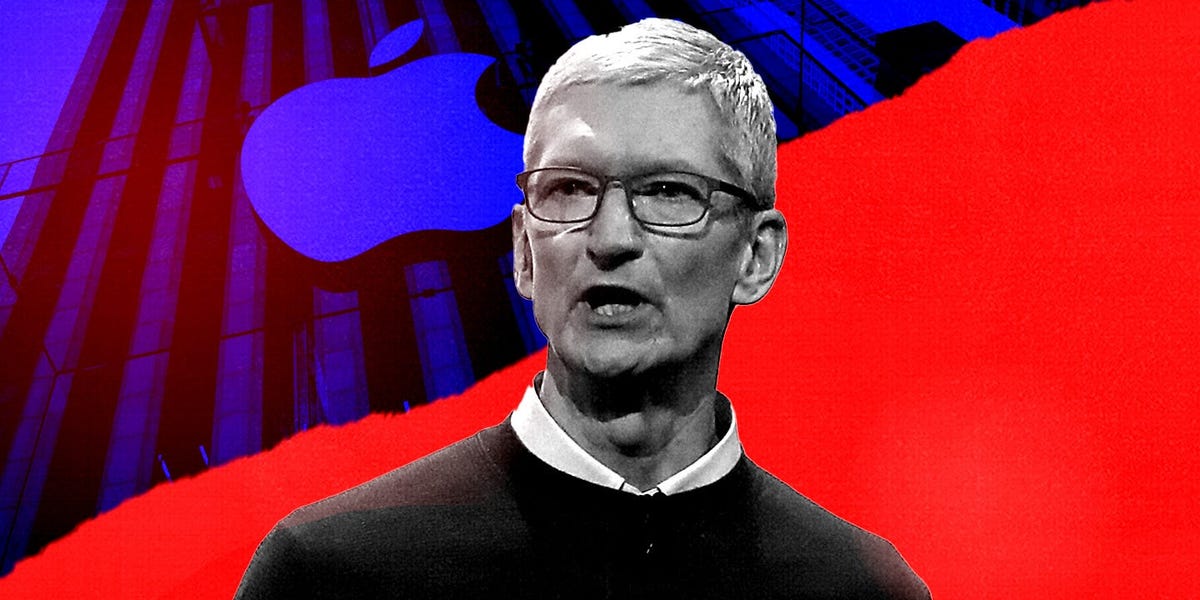Apple is under fire.
The US Department of Justice, along with attorneys general from 16 states, has accused Apple of engaging in illegal anticompetitive behaviors to achieve the iPhone’s dominance.
The stakes are high.
Prosecutors — who likened the action to the famous antitrust lawsuit against Microsoft more than two decades ago — say their focus on the iPhone is because of several ways in which Apple unfairly limits the functionality of other products and services to iPhone users.
Apple “engaged in many of the same tactics that Microsoft used,” the Justice Department alleges, leaving customers with “higher prices, fewer new products, and a worse user experience.”
Apple said in a statement to Business Insider that the suit was “wrong on the facts and the law, and we will vigorously defend against it.”
Meanwhile, it was a bad day for Apple’s stock, which was down more than 4% at market close.
So what does the DOJ’s case against Apple center on?
Here are the five key areas where prosecutors say Apple is breaking the law and harming consumers:
1. Restricting cross-platform apps
The suit says Apple makes it harder for consumers to switch between smartphone platforms by restricting apps that offer a consistent user experience across devices.
2. Limiting cloud streaming games and apps
Prosecutors argue that Apple’s restrictions on streaming services force users to pay for more expensive smartphone hardware than they would otherwise have to.
3. Android users get green text bubbles and grainy videos
Because Apple blocks other apps from sending or receiving carrier-based messages in favor of its own Messages app, the lawsuit says the company is making communications with non-iPhone users less innovative and less secure. Look no further than relegating Android users’ texts to green bubbles and the grainy quality when sending videos, the DOJ argues.
4. Making smartwatches less smart
This one is a twofer: Prosecutors say the Apple Watch’s dependence on an iPhone locks users into the iOS system, while the iPhone doesn’t play as nicely as it should with third-party smartwatches.
5. Denying access to full-fledged digital wallets
In limiting tap-to-pay functionality and restricting third-party development of cross-platform digital wallets, prosecutors say Apple is harming businesses’ and customers’ ability to conduct secure digital transactions on their phones, independently of Apple.




